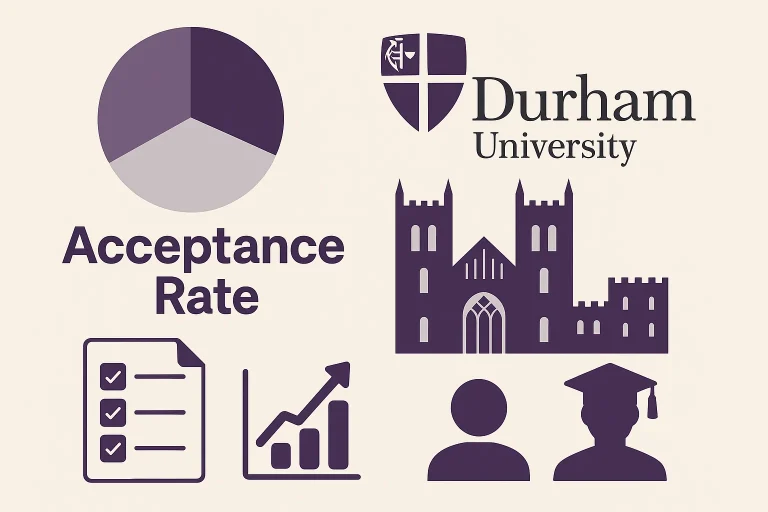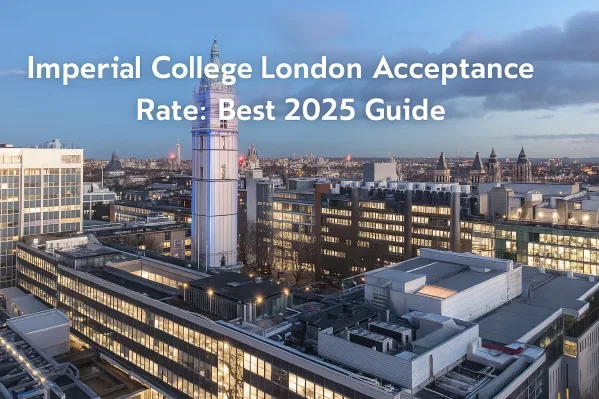Picture this: You’ve just arrived in the UK as an international student, eager to explore everything from the Scottish Highlands to Cornwall’s coastline. But there’s one major obstacle standing between you and complete freedom of movement – you need to learn how to get a UK driving licence. Whether you’re planning weekend trips, need transport for part-time work, or simply want the independence that comes with driving, obtaining your UK licence can seem like navigating a maze of bureaucratic requirements.
The good news? Over 1.6 million driving tests are conducted annually in the UK, with thousands of international students successfully obtaining their licences each year. By the end of this comprehensive guide, you’ll understand the complete process, know exactly what documents you need, master the costs involved, and have a clear roadmap to getting behind the wheel legally in the UK.
Understanding UK Driving Licence Requirements for International Students
Who Can Apply for a UK Driving Licence?
Before diving into how to get a UK driving licence, it’s crucial to understand eligibility. According to the Driver and Vehicle Licensing Agency (DVLA), you can apply for a UK driving licence if you’re:
- Living in Great Britain (England, Scotland, and Wales)
- At least 17 years old (16 for certain vehicle categories)
- Able to read a number plate from 20 metres away
- Physically and mentally fit to drive
For international students, additional considerations include your visa status and length of stay. Students on Tier 4 or Student visas typically qualify, provided they meet residency requirements.
Can You Use Your International Licence?
Many international students wonder if they can simply use their home country licence. The rules vary significantly:
EU/EEA Licences: Following Brexit, EU licences are valid for temporary visits but cannot be exchanged for UK licences. You must apply for a new UK licence following the standard process.
Non-EU Licences: Most international licences allow driving for up to 12 months, but this varies by country. After this period, you must obtain a UK licence to continue driving legally.
The DVLA maintains a comprehensive list of countries whose licences can be exchanged, though most international students will need to complete the full UK testing process.
Step-by-Step Guide: How to Get Your UK Driving Licence
Step 1: Apply for Your Provisional Licence
Your journey begins with obtaining a provisional licence – your legal permission to learn to drive in the UK.
Application Methods:
- Online through DVLA website (fastest option)
- By post using form D1
- At participating Post Office branches
Required Documents:
- Valid passport or UK birth certificate
- Proof of UK address (utility bill, bank statement, or council tax bill)
- Passport-style photograph (if applying by post)
Cost: £34 online or £43 by post
Processing Time: Typically 1-3 weeks for online applications
According to DVLA statistics , over 95% of online provisional licence applications are processed within one week.
Step 2: Start Learning to Drive
Once you receive your provisional licence, you can begin learning. You have two main options:
Professional Driving Instructor:
- Average cost: £25-£35 per hour
- Recommended: 40-50 hours of lessons for beginners
- Total estimated cost: £1,000-£1,750
Friends or Family (if qualified):
- Must be over 21 and held a full UK licence for at least 3 years
- Vehicle must display L plates
- Must have appropriate insurance
Essential Learning Requirements:
- Display L plates at all times
- Be accompanied by a qualified driver
- Practice on public roads only after getting provisional licence
Step 3: Master the Highway Code
The Highway Code is your bible for UK driving rules. It contains 307 rules covering everything from road signs to parking regulations. Key statistics show that thorough Highway Code knowledge significantly improves test pass rates.
Study Methods:
- Official Highway Code book (£2.50)
- DVSA mobile app
- Online practice resources
- Theory test practice apps
Step 4: Pass Your Theory Test
The theory test consists of two parts: multiple-choice questions and hazard perception.
Multiple Choice Section:
- 50 questions from a bank of approximately 700
- Pass mark: 43 out of 50 (86%)
- Time limit: 57 minutes
Hazard Perception Test:
- 14 video clips showing developing hazards
- Pass mark: 44 out of 75
- One clip contains two hazards
Booking and Costs:
- Cost: £23
- Book online at DVSA
- Available in multiple languages
- Results valid for 2 years
Pass Rates: According to DVSA data, the national theory test pass rate is approximately 47%, emphasizing the importance of thorough preparation.
Step 5: Take Your Practical Driving Test
After passing your theory test, you can book your practical test.
Test Duration: Approximately 40 minutes
Test Components:
- Eyesight check
- ‘Show me, tell me’ vehicle safety questions
- Reversing exercise (parallel park, bay park, or pull up on the right)
- Independent driving (following directions or sat nav)
- General driving assessment
Booking Requirements:
- Valid theory test pass certificate
- Provisional licence
- Cost: £62 (weekdays), £75 (evenings and weekends)
Pass Rates: The current national pass rate for practical tests is around 47%, with significant variation by test centre location.
Understanding the Costs: Complete Financial Breakdown
Getting your UK driving licence involves several costs that international students should budget for:
Essential Costs:
- Provisional licence: £34-£43
- Theory test: £23
- Practical test: £62-£75
- Driving lessons (40 hours average): £1,000-£1,400
- Highway Code: £2.50
Additional Potential Costs:
- Extra lessons if needed: £25-£35 per hour
- Theory test retakes: £23 each
- Practical test retakes: £62-£75 each
- Intensive driving courses: £800-£1,500
Total Estimated Cost: £1,200-£1,600 for most international students
According to financial surveys, the average cost of learning to drive in the UK has increased by approximately 15% over the past three years, making budgeting crucial for students.
Common Challenges International Students Face
Language Barriers
While theory tests are available in multiple languages, the practical test is conducted in English. Key strategies include:
- Taking English driving lessons to learn UK-specific terminology
- Practicing with mock tests in English
- Understanding that you can request an interpreter for theory tests in certain languages
Understanding UK Traffic Rules
UK driving presents unique challenges for international students:
Driving on the Left: For students from right-hand driving countries, this requires significant adjustment and practice.
Roundabouts: The UK has approximately 25,000 roundabouts – more than any other country. Mastering roundabout navigation is essential.
Different Road Signs: UK road signs follow European standards but may differ significantly from your home country.
Test Centre Availability
Some areas face significant waiting times for practical tests. DVSA data shows average waiting times can vary from 4-14 weeks depending on location. Popular student cities often have longer wait times.
Strategies for Faster Test Booking:
- Book as soon as you pass your theory test
- Consider test centres in nearby towns
- Use DVSA’s short-notice test cancellation service
- Be flexible with dates and times
Tips for Success: Maximizing Your Chances
Theory Test Success Strategies
Preparation Timeline:
- Week 1-2: Read Highway Code thoroughly
- Week 3-4: Practice mock tests daily
- Week 5-6: Focus on weak areas and hazard perception
Recommended Study Schedule:
- 30 minutes daily Highway Code reading
- 2-3 mock tests per day
- Hazard perception practice sessions
Research indicates students who complete over 500 practice questions have a 73% pass rate compared to 41% for those with minimal preparation.
Practical Test Success Tips
Pre-Test Preparation:
- Take at least 2-3 lessons at your test centre
- Practice during similar times as your test
- Ensure you’re familiar with the test route area
Day of Test:
- Arrive 15 minutes early
- Bring required documents
- Stay calm and follow examiner instructions
- Remember: minor mistakes don’t automatically mean failure
Common Reasons for Test Failure:
- Observation at junctions (15% of failures)
- Use of mirrors (14% of failures)
- Inappropriate speed (12% of failures)
- Steering control (11% of failures)
Special Considerations for International Students
Visa and Documentation Requirements
Your student visa status affects your driving licence application:
- Student Visa Holders: Can apply for UK driving licence if residing in UK
- Short-term Study Visa: May face restrictions depending on visa length
- Address Proof: Must demonstrate UK residency with appropriate documentation
Insurance Considerations
As an international student, you’ll likely face higher insurance premiums:
Factors Affecting Premiums:
- No UK driving history
- Age (if under 25)
- Location of study
- Type of vehicle
Cost-Saving Strategies:
- Consider black box insurance
- Add experienced drivers as named drivers
- Choose higher voluntary excess
- Shop around with specialist international student insurers
Average insurance costs for new drivers range from £1,200-£3,000 annually, with international students often paying at the higher end.
Car Purchase vs. Rental for Students
Buying Considerations:
- Upfront costs: £2,000-£5,000 for reliable used car
- Ongoing costs: Insurance, MOT, maintenance, fuel
- Resale value when returning home
Rental/Car Share Alternatives:
- Zipcar and similar services available in major cities
- Average cost: £6-£8 per hour plus mileage
- No insurance or maintenance worries
Regional Variations Across the UK
England
Most international students study in England, where standard DVLA rules apply. Major cities like London, Manchester, and Birmingham have:
- Higher test centre availability
- More driving instructors
- Longer waiting times due to demand
Scotland
Scottish driving conditions present unique challenges:
- Rural roads and mountain driving
- Weather considerations (snow, ice)
- Different road layouts in cities like Edinburgh
Wales
Wales offers diverse driving conditions from urban Cardiff to rural mountain roads. Test centres may have shorter waiting times outside major cities.
Northern Ireland
Northern Ireland has separate driving licence arrangements through DVA Northern Ireland, not DVLA. Different processes apply if studying there.
Post-Test Procedures: What Happens After You Pass
Receiving Your Licence
After passing your practical test:
- You’ll receive a pass certificate immediately
- Your full licence arrives by post within 3 weeks
- Your provisional licence becomes invalid once you pass
Probationary Period
New drivers face a probationary period with stricter rules:
- Two-year probation period from passing practical test
- Six penalty points maximum (instead of usual 12)
- Licence revocation requires retaking both tests if limit exceeded
Updating Your Details
Keep DVLA informed of:
- Address changes
- Name changes
- Medical conditions affecting driving ability
Advanced Driving Considerations
Pass Plus Scheme
Consider the voluntary Pass Plus course after passing:
- Cost: £200-£300
- Covers: Motorway driving, all-weather conditions, night driving
- Benefits: Insurance discounts up to 30%
International Driving Permits
If planning to drive in other countries:
- UK licence holders can apply for International Driving Permits
- Required for driving in many non-EU countries
- Apply through AA or RAC before traveling
Technology and Modern Driving Tests
Changes in Recent Years
The UK driving test has evolved significantly:
- Sat Nav Integration: Tests now include following sat nav directions
- Reversing Maneuvers: Updated to reflect real-world driving situations
- Digital Theory Tests: Enhanced with video clips and interactive elements
Apps and Digital Resources
Essential apps for learning drivers:
- DVSA Theory Test Kit: Official practice app
- Hazard Perception Test: Specialized practice
- Highway Code App: Interactive rule learning
- Driving Test Cancellations: Short-notice test availability
Financial Support and Budgeting
Student Discounts
Some resources offer student discounts:
- Certain driving schools offer student rates
- AA and RAC membership discounts
- Insurance companies with student-specific policies
Payment Plans
Many driving schools offer flexible payment options:
- Monthly payment plans for lessons
- Package deals for block bookings
- Intensive course payment options
Budgeting Strategies
Monthly Budget Planning:
- Set aside £200-£300 monthly for driving lessons
- Factor in test fees and potential retakes
- Plan for post-licence costs (insurance, fuel)
Safety and Legal Responsibilities
Road Safety Statistics
Understanding UK road safety helps emphasize responsible driving:
- Annual road casualties: Approximately 160,000
- Young driver statistics show higher accident rates
- Importance of continued learning post-test
Legal Obligations
As a UK licence holder, you must:
- Maintain valid insurance at all times
- Ensure vehicle roadworthiness (MOT if applicable)
- Follow all traffic laws and regulations
- Report accidents and driving convictions
Emergency Procedures
Know what to do in case of:
- Road traffic accidents
- Vehicle breakdowns
- Traffic violations or police stops
Common Myths and Misconceptions
Myth 1: “International Students Can’t Get UK Licences”
Reality: Student visa holders can absolutely obtain UK driving licences with proper documentation.
Myth 2: “You Must Surrender Your Home Country Licence”
Reality: You can typically keep your original licence alongside your UK licence.
Myth 3: “The Test is Easier in Certain Areas”
Reality: Test standards are consistent across the UK, though pass rates vary by location due to local driving conditions.
Myth 4: “Automatic Licences Are Limited”
Reality: While manual licences offer more flexibility, automatic licences are perfectly valid for most driving needs.
Environmental Considerations
Electric and Hybrid Vehicles
The UK is moving toward electric vehicles:
- Government ban on new petrol/diesel cars by 2030
- Growing charging infrastructure
- Potential insurance and tax benefits for electric vehicles
Sustainable Transportation
Consider environmental impact:
- Public transport integration with driving
- Car sharing and pooling options
- Cycling and walking for short journeys
Your Path to UK Driving Freedom
Getting a UK driving licence as an international student requires patience, preparation, and proper planning, but it’s an achievable goal that opens up incredible opportunities for exploration and independence. From understanding initial requirements to passing both theory and practical tests, success depends on thorough preparation and realistic budgeting.
Remember that how to get a UK driving licence involves more than just passing tests – it’s about becoming a safe, responsible driver who understands UK road culture and regulations. The average journey takes 3-6 months from start to finish, with total costs ranging from £1,200-£1,600.
Key takeaways for your success:
- Start with your provisional licence application immediately
- Budget realistically for all associated costs
- Practice consistently with qualified instructors
- Study the Highway Code thoroughly
- Allow sufficient time for both theory and practical test preparation
Your UK driving licence isn’t just about transportation – it’s about freedom, opportunities, and making the most of your student experience in the UK. Whether you’re planning weekend adventures, need transport for work, or simply want the independence that comes with driving, following this guide will help you navigate the process successfully.
Ready to start your journey to UK driving independence? At Uninist, we understand that having reliable transportation enhances your entire student experience. From finding the perfect accommodation near your chosen driving school to securing housing in areas with excellent transport links, we’re here to support your UK student journey.
Book a free consultation with Uninist today to discover how we can help you find the ideal student accommodation that supports all aspects of your UK experience – including easy access to driving schools, test centres, and everything else you need to succeed as an international student in the UK.
FAQ
Can international students get a UK driving licence?
Yes, international students can obtain a UK driving licence. You must hold a valid student visa, be at least 17 years old, have UK residency proof, and meet DVLA health requirements. The process involves getting a provisional licence, passing theory and practical tests.
How much does it cost to get a UK driving licence as an international student?
The total cost ranges from £1,200-£1,600 including provisional licence (£34), theory test (£23), practical test (£62), and approximately 40 driving lessons (£1,000-£1,400). Additional costs may include test retakes and insurance according to “DVLA”.
How long does it take to get a UK driving licence for international students?
The process typically takes 3-6 months from start to finish. This includes 1-3 weeks for provisional licence processing, 2-8 weeks theory test preparation, 8-12 weeks of practical lessons, and 4-14 weeks waiting time for practical test booking depending on location.
Can I use my international driving licence in the UK as a student?
Most international driving licences are valid for up to 12 months in the UK. After this period, you must obtain a UK driving licence to continue driving legally. EU licences cannot be exchanged post-Brexit and require the full UK testing process.
Do I need to take both theory and practical tests as an international student?
Yes, all international students must pass both the UK theory test (£23) and practical driving test (£62-£75) to obtain a full UK driving licence. Previous driving experience abroad doesn’t exempt you from either test according to “DVSA”.
What documents do I need to apply for a UK provisional driving licence?
You need a valid passport, proof of UK address (utility bill or bank statement), and a passport-style photograph if applying by post. Student visa holders must provide evidence of UK residency to meet DVLA application requirements.
Where can I take my UK driving test as an international student?
You can book driving tests at any DVLA-approved test centre across the UK. Popular student cities may have longer waiting times (4-14 weeks), so consider nearby locations or use the short-notice cancellation service for faster booking opportunities.
What is the pass rate for UK driving tests for international students?
The national practical test pass rate is approximately 47%, with theory tests at 47% according to “DVSA” “gov.uk“. International students often need additional preparation time due to different traffic rules and driving on the left side.
Can I drive in the UK with an automatic or manual licence as an international student?
You can choose either automatic or manual licence testing. Manual licences allow driving both automatic and manual vehicles, while automatic licences restrict you to automatic vehicles only. Consider your future driving needs when making this decision.
What happens if I fail my UK driving test as an international student?
If you fail, you can retake the test after a 10-working-day waiting period. Theory test retakes cost £23, practical test retakes cost £62-£75. Your theory test pass certificate remains valid for 2 years, giving you multiple practical test attempts.








